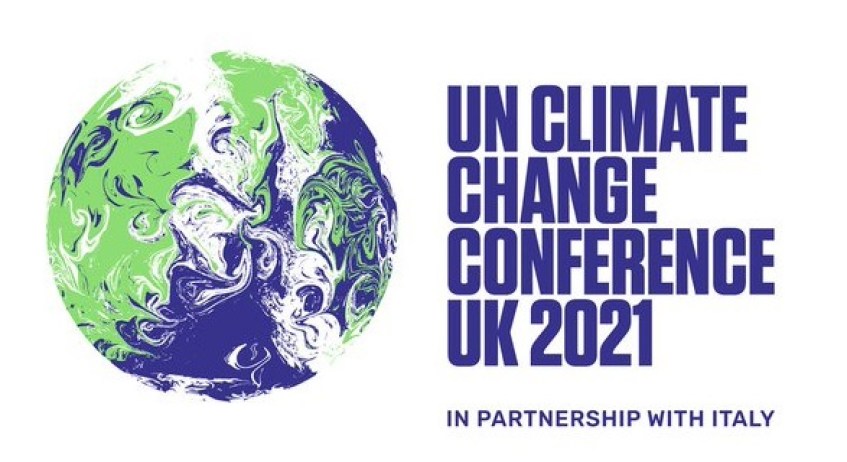Nigeria and the UNFCCC COP 26 Climate Change Conference
The active participation of Nigeria at the United Nations Framework Convention on Climate Change (UNFCCC) Conference of the Parties (COP) …

UNFCCC COP 26 Climate Change Conference
By Professor Nasiru Medugu Idris
The active participation of Nigeria at the United Nations Framework Convention on Climate Change (UNFCCC) Conference of the Parties (COP) tagged “COP 26” which opened in Glasgow, United Kingdom (UK), is very vital as the Climate Change Bill has been passed at both chambers of the National Assembly and is awaiting the president’s assent.
At COP 21 in Paris, France, in 2015, 195 countries signed the Paris Agreement which committed them to keep global temperatures “well below” 2°C above pre-industrial times and “endeavour to limit” them to 1.5°C. In addition, the industrialised countries agreed to pay $100bn a year by 2020 to help developing countries decarbonise their economies.
- Nigeria’s future bleak without restructuring – Yoruba Council of Elders
- COVID 19: Outcry over permit as returning passengers decry treatment by airlines
Therefore, COP 26 has an important role to play in bringing the 2015 Paris Agreement into force and paving the way for more ambitious carbon reduction commitments from governments.
The earlier COP 25 held in 2019 was aimed to develop guidelines on how international carbon markets will work (Article 6 of the Paris Agreement). Other focus areas are adaptation to climate impacts, loss and damage suffered by developing nations due to climate change, finance for decarbonisation and more.
COP 25, which was intended to be the launch pad for the full implementation of the Paris Agreement post-2020 was seen as one of the most fractious and ultimately disappointing in terms of the progress it made. In the end, the nations did agree to bring improved emissions reduction plans to COP 26 in the UK after up to 80 countries announced their intentions to do so. The outcome of COP 25, therefore, pushed a number of important decisions into COP 26 and has increased pressure on the UK to come up with results in Glasgow.
At COP 26, Nigerian negotiators and those of other African countries need to speak with one strong, clear and single voice. Nigeria and Africa should make sure that the country and the continent succeed at COP 26 in terms of negotiations.
Africa’s situation deserves extraordinary attention: the continent contributes just four per cent of global total Greenhouse Gas (GHG) emissions as reported by several international studies, including the UNFCCC report, the lowest of any region, yet its socio-economic development is threatened by the climate crisis. In other words, Africa contributes the least emissions but suffers the brunt of the consequences. Example, in addition to the effects of the climate crisis such as food insecurity, population displacement and water scarcity, more than half of African countries are likely to experience climate-related conflicts.
At COP 26 countries will launch an adaptation goal and adopt a strategy for achieving such a goal. Glasgow, therefore, presents an opportunity to recognise and address the unique needs and circumstances of African countries, including Nigeria.
Therefore, Nigeria’s negotiators must recognise that the conditional parts of Nationally Determined Contributions (NDCs) represent the most ambitious contributions to the Paris Agreement on climate change, and that these require climate finance resources that should be accessible through bilateral and multilateral channels. So Nigeria and Africa need additional support for these initiatives, including the African Renewable Energy Initiative (AREI) and the African Adaptation Initiative (AAI).
Therefore, Nigeria’s and Africa’s priorities for COP 26 should include adaptation, climate finance, a market mechanism (Article 6), ambitious NDCs, a transparency mechanism, meeting pre-2020 mitigation commitments and recognising Africa’s unique needs and circumstances.
COP 26 will likely set new long-term targets for climate finance beyond 2020. A considerable amount of climate finance is urgently needed to support NDC implementation and net-zero emissions trajectories.
Many countries’ pledges are conditional on higher levels of climate finance support. Therefore, defining the sources and modalities of these financial flows is imperative to unlock different countries’ ambitions. Also, for African countries, adequate and fair financing for adaptation and loss and damage is urgently needed.
At COP 26, enhancement of youth inclusion in climate advocacy should also be one of the top priorities. Young people will not only be most impacted by climate change but also inherit the responsibility of addressing it.
We should note that year 2021 is very important for the international climate agenda: it marks an opportunity to assess the implementation of the Paris Agreement signed in 2015 and to ratchet up the fight against global warming. Countries are expected to scale-up their national objectives and communicate their long-term low greenhouse gas emission development strategies (LT-LEDS). But the new decade has opened a bleak backdrop for international cooperation on climate change and a general loss of momentum.
The outcomes of COP 25 in Madrid, Spain were overall disappointing and delayed a number of key sticking points until this year’s COP 26 in Glasgow. Therefore, African countries must find ways to work better with the system as it is, while debunking false narratives, reconciling the complexity of the issues at hand with the multiplicity of interests, and putting the right amount of pressure by pulling key levers. Africa should make sure it participates fully in the global rule and policy-making efforts on climate change. And while stepping up their advocacy and awareness-raising work, African countries should further develop their capacities to carry-out tailored research and data collection that improves the understanding of the connections between a warmer planet and their dangerous impacts on the African continent.
Finally, African countries need to strengthen their continental, regional, and national institutional capacities to develop long-term climate-resilient development strategies across sectors. Having access to pertinent data, information and decision-making tools will be critical to reduce the potential damages from climate change.
Idris is the Dean, Faculty of Environmental Science, Nasarawa State University, Keffi.
